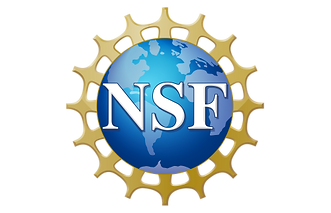
Organismal biology in a changing world
Welcome! We are a group of integrative organismal biologists located in the Department of Ecology and Evolutionary Biology at the University of Arizona. Our research focuses on understanding how mammals respond to environmental change and challenge, from developmental or maternal challenges experienced in early life, to broader socioecological challenges related to resource availability and competition. We are interested in both the proximate ("how?") and evolutionary ("why?") drivers of these responses, with a particular focus on the role that host-associated microbiomes play in mediating these patterns.
PI: Lauren Petrullo | contact: laurenpetrullo@arizona.edu

lab happenings

December 2025. We are excited to welcome our new postdoc, Dr. Zachary Compton, to the lab! Zach got his PhD in evo bio at ASU and is interested in applying evolutionary principles to human health and disease.
.jpg)
December 2025. Huge congratulations to Honor's student Abby Pearse on receiving a W. A. Franke Honor's exploratory grant for her research linking patterns of precipitation and temperature change to the gut microbiomes of Peromyscus spp. across a temporal and spatial gradient.

November 2025. New paper! "Indirect environmental effects on the gut-brain axis in a wild mammal" is now out in early view at Molecular Ecology. Read it here.

October 2025. Gabri and Ally have just returned from the Yukon, where they helped collect annual midden cone count data for the Kluane Red Squirrel Project. They also collected microbiome data on a set of red squirrel middens for Gabri's project looking at middens as microbial reservoirs for their red squirrel owners.

September 2025. The Petrullo Lab is thrilled to have received seed funding from the Desert Laboratory on Tumamoc Hill to begin a field study of wild ground squirrels. Our goal is to understand how host microbial ecology may shape resilience and heat tolerance in desert-adapted small mammals. With these funds, we will begin trapping, tracking, and sampling sympatric species of ground squirrels endemic to the Sonoran desert with different life histories, and social systems. We hope that this work will shed light on how host-microbe interactions may facilitate divergent strategies for navigating challenging environments.

September 2025. We are celebrating official word of receiving a five-year NIH R35 (MIRA) grant from the National Institutes of General Medical Sciences to study interactions between the gut microbiome and the brain in wild rodents. We are excited to pursue questions related to how integration of environmental cues by the neuroendocrine system shapes gut microbial communities, and what these processes may mean for organismal health, fitness, and resilience. This grant will support multiple graduate students, postdocs, and other project personnel, and we are looking for new lab members at all levels. Contact Lauren if interested.

August 2025. New paper! "Social microbial transmission in a solitary mammal" is now out in Ecology Letters. Read it here.

June 2025. Natalie has returned from her first field season in the Yukon during which she received training in core data collection and successfully completed her pilot data sampling for her dissertation. She was able to successfully collect over 70 (!) fecal samples from 25-day old squirrel pups, which will allow us to investigate heterogeneity in vertical transmission of microbiota from mothers to offspring in this population, and begin linking microbial variation to offspring phenotypes as they face the strongest survival bottleneck of a red squirrel's life - survival past the first winter.

May 2025. New paper! "Harbingers of change: towards a mechanistic understanding of anticipatory plasticity in animal systems" is now out in Functional Ecology and part of a special issue on the Causes and Consequences of Phenotypic Plasticity. Read it here.

May 2025. Our research was featured in the inaugural issue of the College of Science Impact report. Read more about it here.

April 2025. Huge congratulations to Natalie and Ally for both receiving Honorable Mentions for the NSF Graduate Research Fellowship in what was an extremely competitive year!
_edited.jpg)
April 2025. Congratulations to undergraduate researcher and Honor's student Abby Pearse for winning the People's Choice award at the EEB Undergraduate Research Fair!

April 2025. Congrats to Undergrad researcher McKenzie Matlock presented her work at the EEB Undergraduate Research Fair. McKenzie has been working on a project looking at at ecological drivers of variation in body condition in two sympatric species of Peromyscus. We are grateful to NSF NEON and the incredible team at the NEON Biorepository at ASU for their collaboration on this work, which is the start of our larger goal to leverage the temporal and spatial gradient of NEON data on the gut microbiomes of wild mice to ask questions about phylogenetic and ecological constraints on microbial flexiblity.

March 2025. Lauren returned from a short stint in the field at Squirrel Camp. Days were spent traversing grid and making snowshoe trails for folks to get from midden to midden, putting colors into ear tags so we can ID individuals from afar the rest of the year, and trapping to see who made it through the winter.